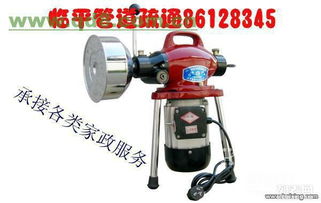"Efficient Plumbing Solutions: Understanding the English Term for a Plumber's Essential Tool - the Drain Cleaner"
In the world of plumbing, one tool stands out as an indispensable helper for professionals and DIY enthusiasts alike: the drain cleaner. Whether it's a clogged sink, a blocked toilet, or a slow-draining bathtub, the drain cleaner is often the first line of defense. But what is the English term for this vital piece of equipment? Let's delve into the details and explore the significance of the drain cleaner in the realm of plumbing.
The English term for a drain cleaner is, quite simply, "drain cleaner." This term encompasses a variety of products designed to dissolve or dislodge blockages in pipes and drains. While the name might seem straightforward, the variety of drain cleaners available on the market can be quite extensive, each with its own unique set of features and applications.
Drain cleaners are typically categorized into two main types: chemical and mechanical. Chemical drain cleaners are the most common and are often found in households. They contain powerful chemicals, such as sodium hydroxide or sulfuric acid, which can break down organic matter, grease, and hair that cause blockages. These cleaners are usually poured down the drain and left to work for a period of time before being flushed away with hot water.

On the other hand, mechanical drain cleaners, also known as drain snakes or plumbing snakes, are more hands-on tools. They consist of a flexible cable with a corkscrew-like blade on the end. The cable is inserted into the drain and pushed down until it reaches the blockage. The blade then cuts through the debris, allowing it to be removed. Mechanical drain cleaners are particularly effective for more stubborn blockages and are often preferred by professional plumbers.
While both types of drain cleaners serve the same purpose, it's important to use them correctly to avoid causing damage to your plumbing system or, worse, harming yourself. Here are some tips for using a drain cleaner safely:
Always read the instructions: Different drain cleaners have different ingredients and usage guidelines. Make sure you understand how to use the product before applying it to your drain.
Use the right product: For organic blockages, such as hair and grease, a chemical drain cleaner is suitable. For more severe blockages, a mechanical drain cleaner may be necessary.
Avoid using harsh chemicals: While chemical drain cleaners are effective, they can be harmful to your plumbing system and the environment. Opt for a product that is less harsh and environmentally friendly if possible.
Wear protective gear: When working with chemicals, it's essential to wear gloves, goggles, and a mask to protect yourself from potential harm.
Don't use drain cleaners regularly: Frequent use of drain cleaners can cause damage to your pipes over time. Use them only when necessary and consider alternative methods, such as boiling water or a plunger, for occasional clogs.
Call a professional: If a drain cleaner doesn't work or if you're unsure about the best course of action, it's always a good idea to call a professional plumber. They have the expertise and tools to handle even the most challenging blockages.
In conclusion, the English term for a drain cleaner is a simple one, but the tool itself is anything but simple. It plays a crucial role in maintaining the functionality of our plumbing systems and can be a lifesaver when dealing with clogs. Whether you choose a chemical or mechanical drain cleaner, always use it responsibly and seek professional help when needed. With the right tool and approach, you can keep your drains flowing smoothly and avoid costly repairs in the future.